“It was the custom of these pirates to subdue their prey, loot the ship, bind their captives and blow them up.”
|
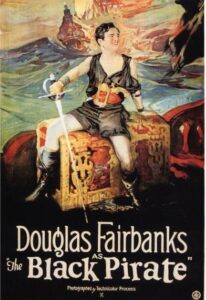
Synopsis:
A duke (Douglas Fairbanks, Sr.) who escapes the marauding of a merchant vessel by a band of cutthroat pirates seeks revenge and earns his way into their graces, soon helping them single-handedly take over another ship — this one with a beautiful maiden (Billie Dove) on board. Can Fairbanks save Dove from a terrible fate while eliciting support from the nearby government?
|
|
Genres, Themes, Actors, and Directors:
- Donald Crisp Films
- Douglas Fairbanks, Sr. Films
- Pirates
- Revenge
- Silent Films
Review:
This Douglas Fairbanks, Sr. film is one of only two listed in Peary’s GFTFF, along with The Mark of Zorro (1920) (though I’ve also included The Thief of Bagdad as a missing title). The Black Pirate is notable not only for Fairbanks’ agile derring-do — on ample display, as always — but for its use of an early two-strip Technicolor process. A couple of especially memorable scenes include Fairbanks slicing down the sails of a captured pirate ship with his dagger:
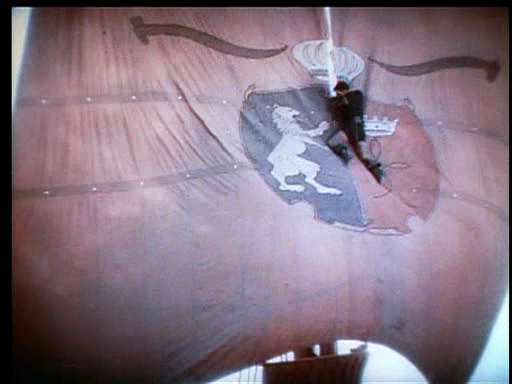
… and the final rescue scene involving a crew of nimble men in swimming shorts:

However, while it’s pretty to look at and Fairbanks is as impressive as ever, the storyline is nothing more than a boy’s fantasy writ large, including hidden treasure, walking the plank, and plenty of pirate-y mischief; it was accurately described by Mordaunt Hall of the New York Times as “a series of robust scenes slung on a slender thread of a story.” This one is will be of interest to Fairbanks fans (or silent film lovers), but isn’t required viewing for all film fanatics.
Redeeming Qualities and Moments:
- Several enjoyable action scenes
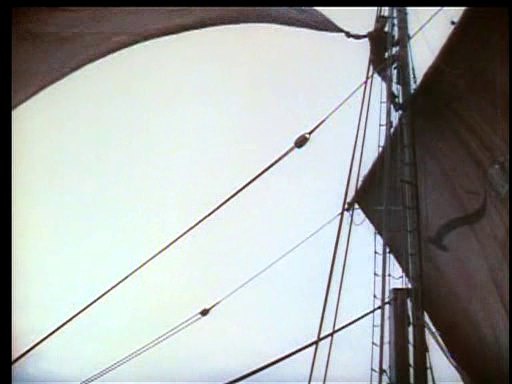
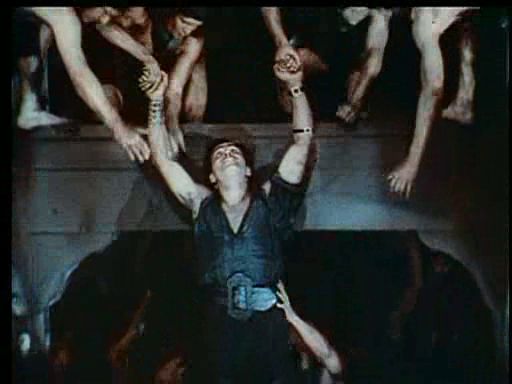
- Impressive two-strip Technicolor
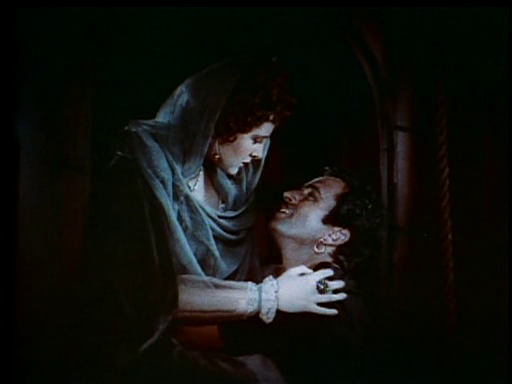
Must See?
No. Listed as a film with Historical Importance in the back of Peary’s book.
Links:
|






2 thoughts on “Black Pirate, The (1926)”
First viewing (3/6/20). Not must-see.
Standard pirate tale – involving hidden treasure and the kidnapping of a princess and such. Possibly only notable for giving Fairbanks an opportunity to be rather athletic, but not all that memorable otherwise.
Disagree with it not being a must-see. I saw the most recent restored version at the London Film Festival accompanied by live piano music and found it immensely enjoyable, an early example of the genre which definitely set the template.
The opening scenes with the victorious pirate skimming off the rings of the dead victims and another literally retrieving a ring just swallowed by a prisoner set the tone of this rumbustious movie which has plenty of incredible scenes livened up by the primitive colour photography.
The latest restoration included some missing scenes and intertitles and but I don’t think it changed the story too much.